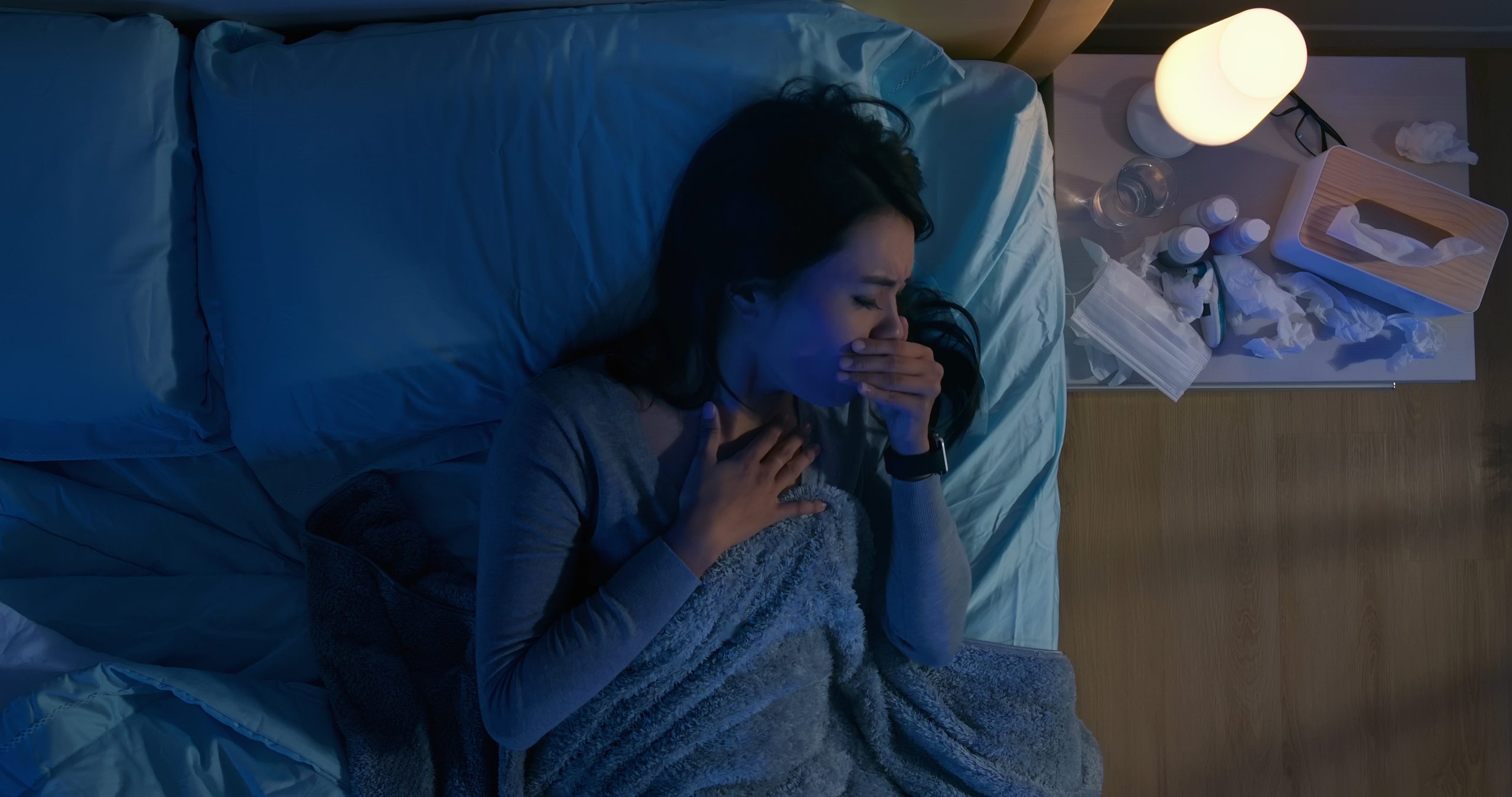How to sleep with a sore throat

How to sleep with a sore throat
Not getting a good night’s sleep can leave you feeling tired and sluggish the following day. It’s even worse if you’re already under the weather with a throat infection. Unfortunately, uncomfortable symptoms such as coughs, sore throats and painful swallowing can be a barrier standing between you and your much-needed rest – so what can you do about it?
How to sleep comfortably with a sore throat
Whether you’ve been prescribed medication from your doctor or you’re treating the symptoms yourself with over-the-counter or at-home remedies. You can’t rely on your sore throat disappearing just in time for you to get some shuteye. Most sore throats last about a week, so you might have to manage your symptoms for several nights before you feel better.[1]
Your best option, therefore, is to focus on treating the symptoms that are keeping you up. That way, you can hopefully get off to sleep before the resurgence of your sore throat. Below, we’ve outlined a few of the most effective ways to soothe a sore throat before bedtime.
Use a soothing throat spray
One of the simplest ways to tackle a pesky sore throat is to use a local anaesthetic spray such as Ultra Chloraseptic’s Menthol Throat Spray. This spray uses a targeted nozzle to spray a solution containing benzocaine at the back of your throat. Which numbs the pain temporarily. This can allow you to get off to sleep while your throat is still numb.
While other treatments such as medicated lozenges can also be helpful in relieving sore throat symptoms, they might not be so well suited to use at bedtime. Lozenges can present a potential choking hazard, particularly when you’re lying down. Additionally, you’d have to wait until the whole lozenge has dissolved to go to sleep, rather than using a quick spray and settling down immediately.
It’s not recommended to eat after using a local anaesthetic spray, as it can be easier to bite your cheek or otherwise injure your mouth when you don’t have full sensation. For this reason, we recommend using the soothing spray after cleaning your teeth and as close to lying down to sleep as possible. This gives you the best chance of falling asleep before the local anaesthetic wears off.
Drink hot lemon water before bed
If you like to have a hot, non-caffeinated beverage in the evenings, you might enjoy swapping out your usual order for a hot honey and lemon drink instead. Lemon is good for soothing sore throats, as is honey, and a warm drink can help to relax you and make you feel more sleepy[2].
If a hot honey and lemon doesn’t quite suit you, there are other options that can be similarly beneficial in soothing a sore throat. These include:
- Warm honeyed milk
- Lemon-infused water
- Herbal teas[3]
- Plain water
That last one might sound a little strange – after all, water doesn’t have antibacterial properties – but the fact is that staying hydrated is a good way to help banish a sore throat. Drinking lots of water (or a beverage of your choice) can help to lubricate your throat and prevent that dry, scratchy feeling[1]. It’s also an excellent way to prevent unrelated symptoms from making you feel even worse – particularly dehydration headaches, which can be a pain.
Keep a glass of water to hand
We’ve mentioned that it’s a good idea to stay hydrated before bed, but it can be a good decision to keep a glass of water close by while you sleep as well. As your throat becomes dry, it can feel more painful and hot with inflammation, so water can be a good way to combat this during the night.
It’s true that any beverage can do this, but we recommend water for two reasons. First, water doesn’t usually taste quite so strange as other drinks do if you’ve recently brushed your teeth. If you opted for fruit squash, for example, you might be reluctant to drink it because of the unpleasant taste while your mouth readjusts from the minty flavour of your toothpaste.
Secondly, water doesn’t contain sugar or additives, so if you do happen to accidentally spill some on your pyjamas or your sheets, at least they won’t be sticky come morning. That said, if you detest the usual taste of water, you can of course opt for a different drink to keep by your bedside. The key thing is to stay hydrated – no matter how you do it.
Resources:
[1] https://www.nhs.uk/conditions/sore-throat/
[3] Ohishi, Tomokazu et al. “Anti-inflammatory Action of Green Tea.” Anti-inflammatory & anti-allergy agents in medicinal chemistry vol. 15,2 (2016): 74-90. doi:10.2174/1871523015666160915154443 https://pubmed.ncbi.nlm.nih.gov/27634207/

